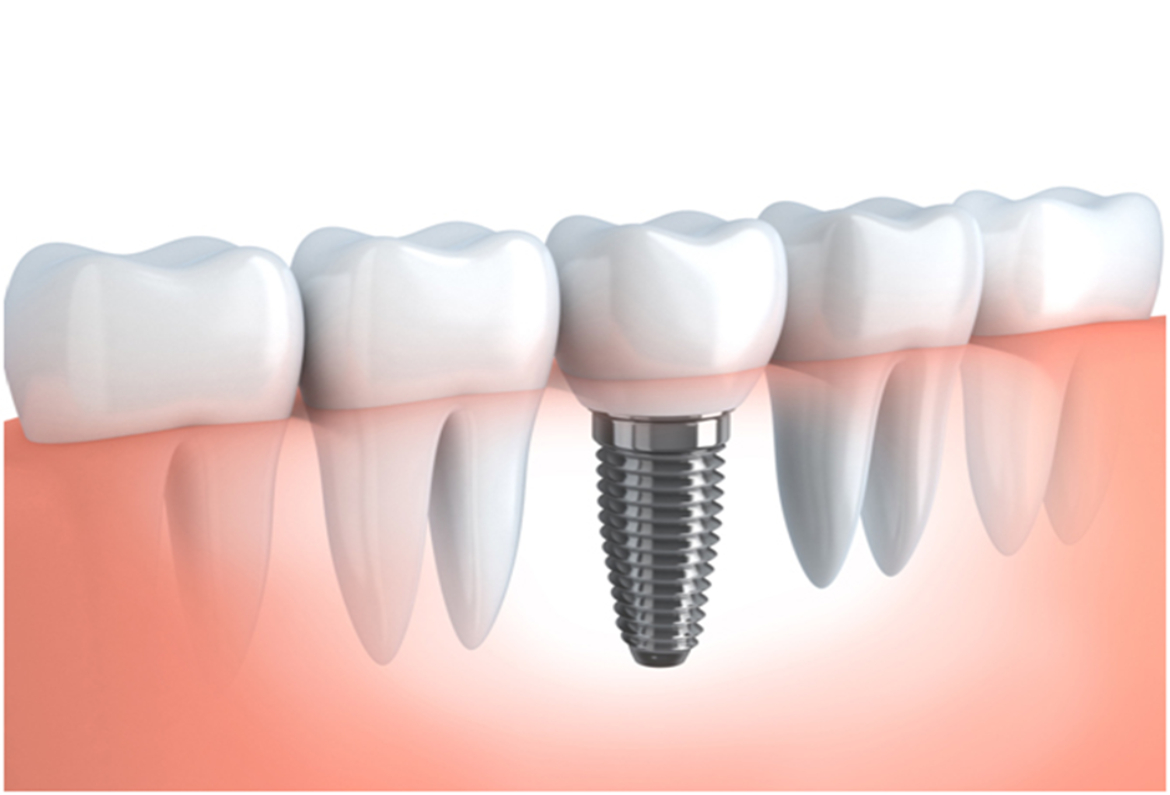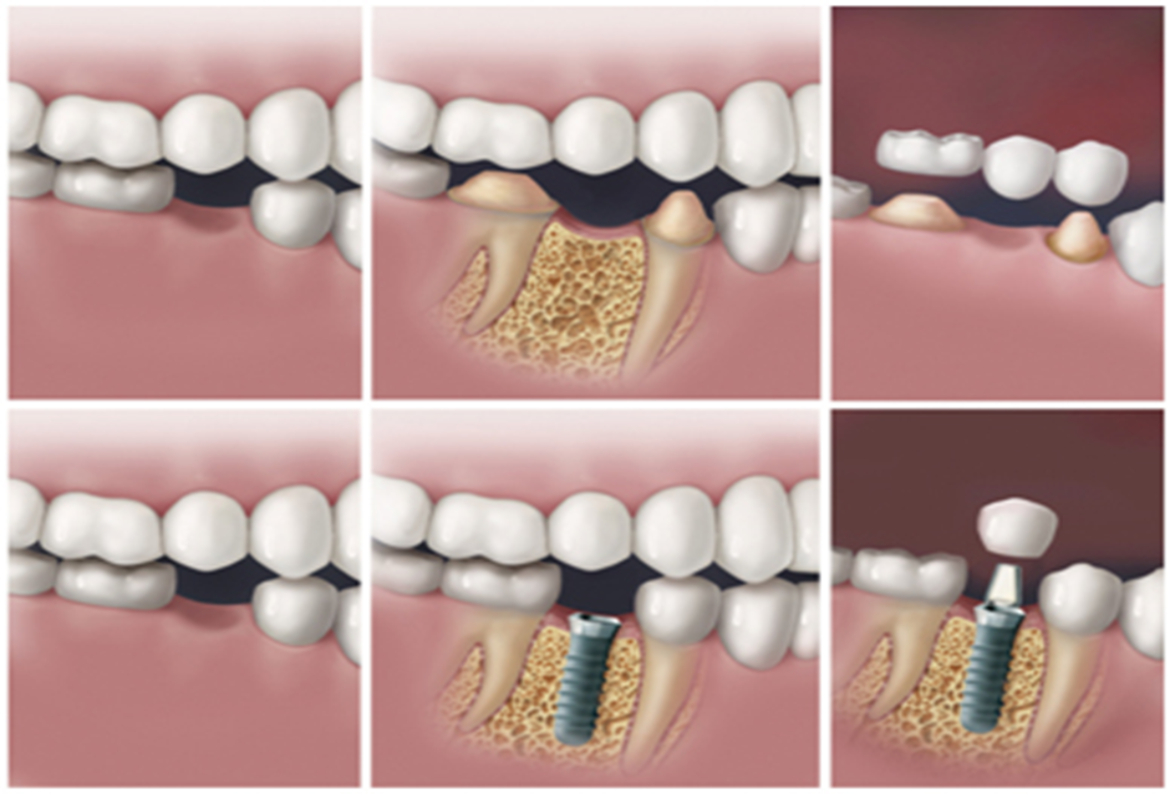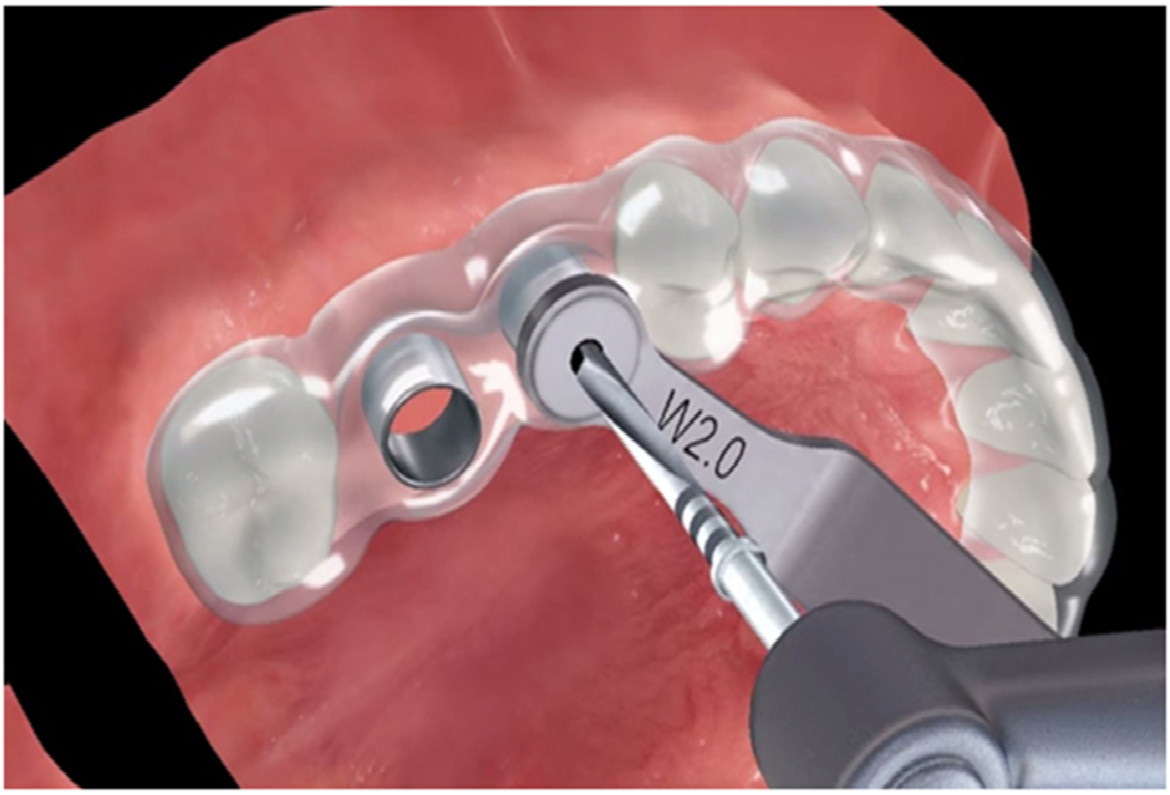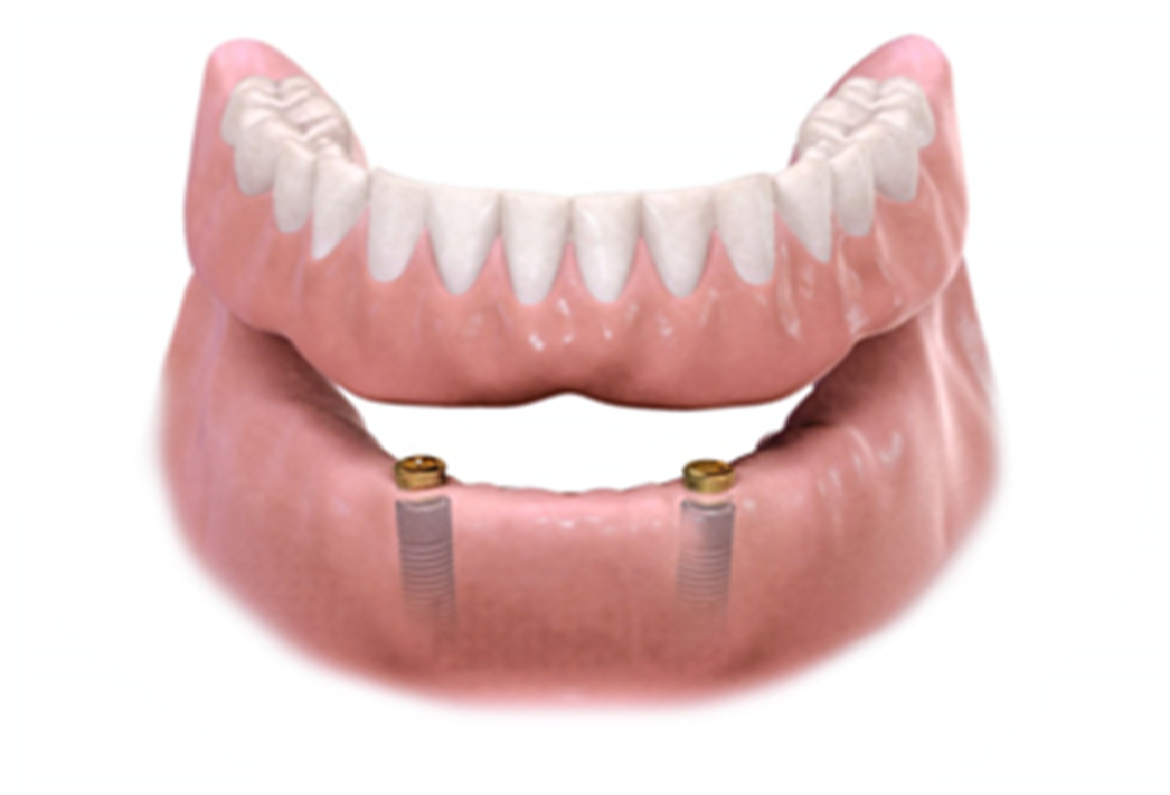- kalpvrikshadentoimplant@gmail.com
- +91 9329378883
- Mon to Sat: 8:00 AM to 9:00 PM | Sun: Closed
☛ Dental implants are titanium inserts which are placed in the jaw bone and serve to restore one or more missing teeth. They are also used to more effectively retain dentures, and patients who wear dentures retained by them are very happy with the added security and comfort that they provide.

☛ When there is a situation where there is a single or multiple missing teeth in the mouth, replacement of that missing space by dental implants offers certain advantages over a bridge and/or a denture. They are:
☛ Teeth made on dental implants look like natural teeth. They do not look artificial. Patients have reported a very high level of satisfaction with the appearance of teeth on dental implants.
☛ Dental implants are made of titanium and other alloys. They are manufactured to be exceedingly strong to withstand the force of daily chewing.
☛ Yes, your front teeth can be replaced by dental implants, fixed bridges or removable dentures.
☛ A major advantage of implants over conventional bridges is that no adjacent teeth need to be reduced in order to place a dental implant. In a bridge, neighbouring teeth need to be shaped down to accommodate a bridge and replace a missing tooth. When implants are used, the neighbouring teeth are spared and the missing tooth is effectively restored. In some cases, the cost of a single dental implant and a crown is exactly the same as a cost of a bridge, so there's even more reason to spare the adjacent teeth and avoid placing a bridge when an implant can be used.

☛ A bridge made on teeth adjacent to the missing teeth or a removable denture are alternatives to a dental implant.
☛ Following a detailed history, clinical examination and diagnostic imaging (X-rays and CT Scans), our team will discuss the possibilities of using dental implants to replace missing teeth in the mouth. Most patients are good candidates for receiving dental implants, however there are a handful of specific conditions where implants are not advised. In the event that there is insufficient bone to place the dental implant, it may be required to enhance the volume of available bone with artificial bone. This artificial bone may be placed simultaneously at the time of implant placement, or may be placed initially, followed by a 3-6 month healing period, after which the implant is placed.
☛ In general, dental implants should be placed only after growth of the patient has stopped, which is around 18 years. This ensures that the implant is in the right place to hold the future tooth after the completion of growth.
☛ After a detailed planning phase which involves diagnostic impressions, X-Rays and CT Scans, the surgical team digitally plans the placement of the future implant on the computer. This plan is then used to fabricate a “surgical guide” to ensure accurate placement of the dental implant in your mouth. In certain conditions, we can immediately place artificial teeth on the implants and you can walk out of the facility with brand new teeth. In some cases, we will have to wait for a certain time period to ensure that the bone around the implant is healed before we replace the missing tooth or teeth. In general, this waiting time before the final restoration is made is between 4-6 months. During this waiting period, temporary teeth will be made for you.

☛ We practice implant dentistry under local anesthesia. All types of implant treatment ranging from conventional implantology to more advanced techniques such as All-on-4 and Zygomatic implants are done at Kalpvriksha Dental. We use a coordinated team approach consisting of a surgical and restorative dentist to ensure that you get the best result possible. All of the various options available to you will be discussed at the time of your appointment.
☛ Bone grafts are usually not necessary to place most dental implants in simple situations. However, if there is substantial bone loss as the result of a loss of a tooth several years ago or an infection, we will work towards building back that bone prior to or during implant placement with artificial bone grafts.
☛ An implant procedure is not painful at all, as all dental implant procedures are done under local anesthesia. In general, a single implant placement takes about 30-45 minutes. Most patients report little to no discomfort during the implant surgery as we ensure sufficient anesthesia before commencing the procedure. Patients are usually required to start a course of antibiotics prior to the surgery to ensure good healing after the surgery.
☛ Post-surgery discomfort, if present, is managed by over the counter pain medication. Most patients report little to no discomfort after the procedure. Mild swelling may be present for 2-3 days depending on the procedure. A diet of soft food may be advised immediately after the procedure till the healing process is complete. Care and maintenance (cleaning) instructions will be provided to you and you will be asked to visit in 7-10 days for a follow up appointment. If stitches are used during the surgery, these are removed in 7-10 days.
☛ After the surgery, we advise patients to eat soft food for 2-3 days. It is also advisable to avoid very hot (temperature) foods on the day of the surgery. If you have been given temporary teeth, we would advise you to only eat soft foods on the temporary teeth to avoid damage to the temporary teeth and placement of undue stress on the implants.
☛ When well maintained, implants do not have an expiration date. If an implants fails, patients usually feel mild discomfort and a bad taste in the mouth. The implants are then retrieved under local anesthesia, and a new implant is placed. If the amount of bone available is less, the area is bone grafted and a new implant is placed in 4-6 months after there is sufficient volume of bone available.
☛ There is no expiration date on dental implants. With proper care and maintenance, and regular dental checkups, they can be expected to last a very long time and do not require replacement.
☛ The failure rate of dental implants is about 3-5%. Due to this very low failure rate, dental implant companies offer a lifetime warranty on their products. We do not place dental implants on patients with uncontrolled blood pressure and uncontrolled diabetes. Heavy smokers show a higher incidence of dental implant failures (8-10% failure), so we advise patients to reduce or quit smoking all together to improve their oral health.
☛ When fixed teeth are placed on implants, care and maintenance remains the same as natural teeth. This involved brushing with a tooth brush and tooth paste twice a day, and regular dental flossing. In case the implants are used to better retain a denture, then the denture is removed from the mouth and the implant attachments are gently cleaned with a tooth brush and tooth paste. The denture is cleaned outside the mouth using a different tooth brush and hand soap. Denture cleaning tablets can also be used once a week.
☛ Patients with implants require the same level of care and maintenance as patients without implants. All patients are advised a 6 month check-up and cleaning appointment to ensure optimal oral health.
☛ Yes, absolutely. A conventional denture is made of acrylic and sits directly on the gum tissue, or uses the support of existing teeth in the case of a partial denture. With dental implants, attachments can be added to the implant and the denture to provide extra retention for the dentures, reducing the need for the use of dental adhesives and promoting improved chewing ability and patient comfort. The implant retained denture will still be removable, but only when you want to remove it and will not accidentally come out or move around during chewing food and talking.
